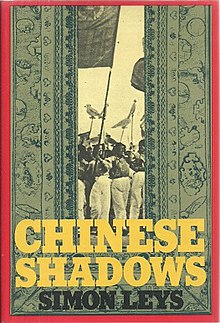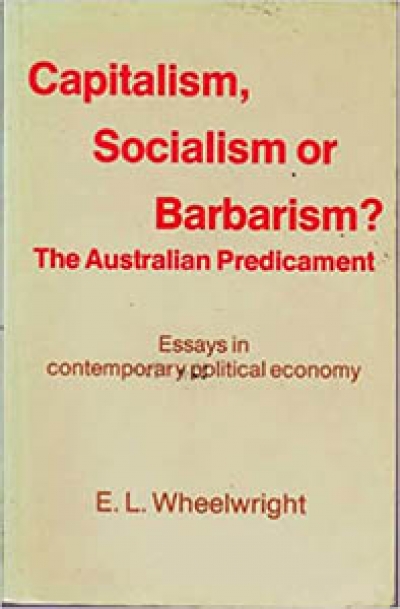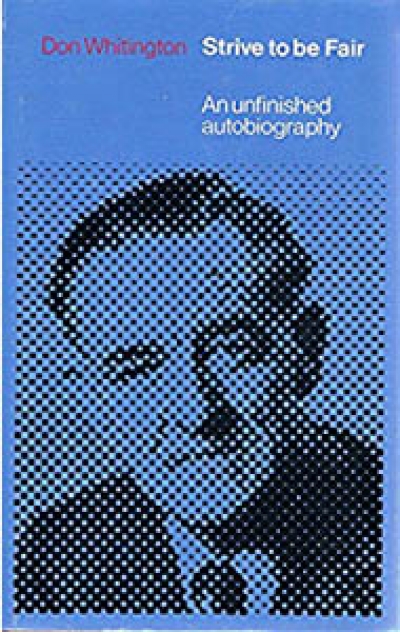Politics
‘What is a leader?’ asks the rather breathless blurb on the back of W. J. Byrt’s Leaders and Leadership. ‘Is he the product of the situation in which he finds himself? Is he the possessor of definite character traits? Does he have an inherent charisma which elevates him above his fellows? Are the determining factors social, political, personal or intellectual or some mystical combination of them all?’ These are interesting questions: the answers to them would be still more interesting. However, the best the author is able to come up with, after 175 pages of fairly repetitious theorising and examplifying, is the following: ‘Leadership is a process whereby the behaviour of the led is influenced by a leader of leaders. The process depends on the leader being able, or being perceived to be able, to assist the led in achieving the satisfaction of certain needs within certain situations.’
... (read more)I would like to think that the author hiding behind the pseudonym of Lake O’Charley is Don Chipp. Chipp would certainly be an enthusiastic supporter of the industrial relations policies advocated by the key characters in Anatomy of a Strike. And Lake O’Charley, like Chipp, clearly has a good working knowledge of the inner world of industrial relations. But I’ll play safe and settle for the assertion that Chipp and O’Charley are like-minded in much the same way as are the two main characters in this book – Richard Altman, QC , Counsel for the moderate Oil Superintendents and Operatives Union (OSO), and Robert Parrish, recently appointed Minister for Industrial Relations in the Australian Liberal Government.
... (read more)It was inevitable that the phenomenon of Don Chipp’s Democrats would spawn an industry of quickie books; so far we have had two. The Third Man (which was written by Chipp himself in collaboration with the Melbourne journalist John Larkin) and now this one: Don Chipp, written by two journalists from the Melbourne office of The Australian, Tim Hewat and David Wilson. Both books are more or less bad, revolving as they do around a sort of log-cabin-to-White-House theme which is manifestly unsuited to any discussion of Australian politics. But at least Chipp and Larkin have both met the man about whom they are writing. There is no evidence that Hewat or Wilson has; and in fact their brief and boring 113 pages, padded out with an already out-of-date policy statement and a totally unnecessary index adds nothing to the sum of human knowledge, either by way of new facts or sensible analysis.
... (read more)‘The masses are the real heroes, while we ourselves are often childish and ignorant, and without this understanding it is impossible to acquire even the most rudimentary knowledge’(Mao Tse-tung, 1941) Except for the word ‘often’, which Simon Leys would wish to be replaced by ‘always’, this statement is one with which he would agree, because by ‘we ourselves’ Mao means the Chinese Communist Party. In this book, which deals with China in the early 1970s, Leys appears preoccupied with four major concerns: (1) He is a deep lover of the Chinese people (2) He hates intensely everything connected with ‘the authorities’. In his view, everything good about China is due to the people, everything bad to their government.
... (read more)Capitalism, Socialism or Barbarism? The Australian Predicament: Essays on contemporary political economy by E.L. Wheelwright
Central to this collection of essays by Ted Wheelwright is the argument that orthodox economics is a positive hindrance to any real understanding of the problems of the last quarter of the twentieth century. A rebirth of the political economy is necessary to remove the stench (from the corpse of orthodox economics) that is polluting the social sciences.
Now, it is certainly true that orthodox economics (that is the economics taught in ninety-nine per cent of our Universities, practised by Treasuries around Australia and spiritual descendant of Adam Smith, sometimes modified by Keynes) casts little light on some of the most acute problems of our era – the coexistence of unemployment and inflation, the (Mal) distribution of income between classes, the persistence of poverty, the power of the multi-nationals, etc.
... (read more)Don Whitington became a journalist seven years before I was born, and moved to Canberra for the first time shortly before the Japanese bombed Pearl Harbor. He died last year, after a tragically bungled series of surgical operations, before he was able to complete his autobiography, Strive to be Fair.
The title is taken from a remark one of the many editors for whom he worked made: ‘There is no such thing as a good objective journalist. If you are not sensitive enough to feel for your subject, to have a point of view, to suffer joy or agony or sympathy about a story you are covering, you will never be a good journalist. Don’t strive to be objective. Strive to be fair.’
... (read more)Management Reform in English Local Government by Malcolm Bains
Local government in Australia and in England have little more in common than their name and tradition. The functions of local government in England, their size and relationship to the central government in Westminster means that they are more like the Australian States than local authorities here.
... (read more)






